Cork soccer and Shamrock Rovers have a long FAI Cup history
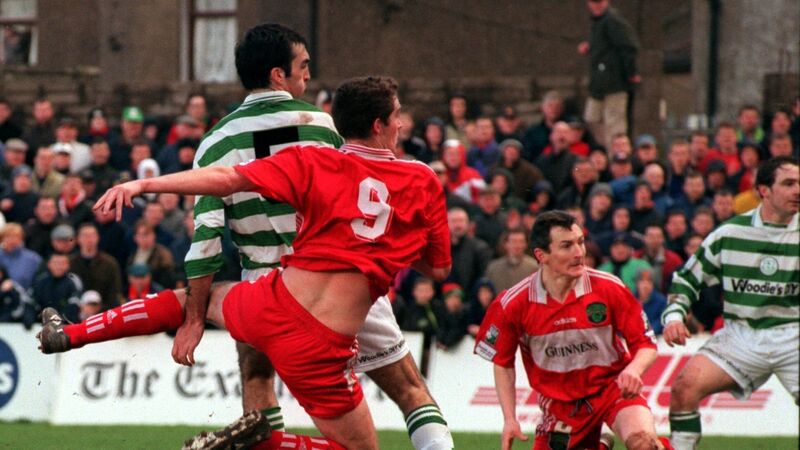
Cork City Noel Hartigan hammers home the all important goal against Shamrock Rovers in the league cup final in 1998 at Turner's Cross. Picture: Eddie O'Hare
When Cork City walk out at the Aviva Stadium to face Shamrock Rovers in the 2025 FAI Cup final this Sunday, it will be just the third time that the two teams have met in a senior national decider.
Their first encounter was back in 1987 and the Rebel Army defeated their far away rivals 1-0 while on their way to lifting the League of Ireland Cup.
They met again in 1998 and once again the green white and red prevailed, with Noel Hartigan getting the winner in the second leg following a scored draw in Dublin.
When it comes to the FAI Cup, the story belongs to the various precursors to Cork City with five encounters between representative teams of the Rebel County and Shamrock Rovers down through the years.
This starts with very first victory a Cork team in the competition, Fordsons in 1926.
It went down in history as one of the ‘great giant killings’ and the closing of a chapter that began with the second coming of soccer in the south of Ireland following the restoration of the Munster Football Association.
Harry Buckle drove that project, while lining out for Fordsons, the club he helped create while working on car manufacturing in Fords.
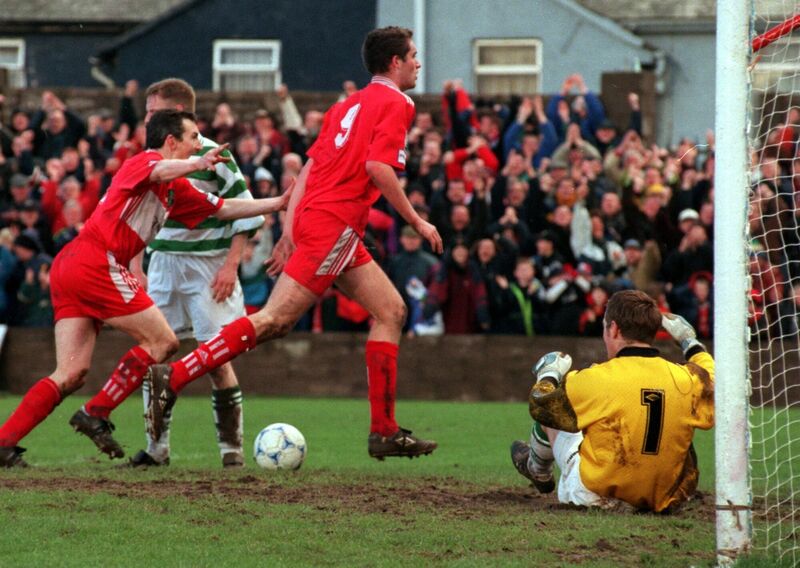
Shamrock Rovers held all the cards for the FAI Cup final as they were the reigning champions, in addition to holding a near perfect record against their opponents.
That boasted a streak of played six, won six, with their superiority ranging from 7-0 to 6-0 and 5-0.
The Hoops even opened the scoring on the day, and Dave Roberts equalised shortly after for Fordsons.
Fagan replied for Rovers and at 2-1 it very much looked like the trophy was going to remain in Dublin, with reports citing their domination of possession on the day.
Fordsons came out for the second half and managed to equalise in the 65th minute with Paddy Barry hitting the back of the net.
Rovers were then awarded a penalty and against all odds, fan favourite Bob Fulham saw his effort stopped by Billy O’Hagan.
Dave Roberts retaliated with a pass to Paddy Barry, who was able to keep his composure and score what turned out to be the winner.
Shamrock Rovers went on to reach five successive FAI Cup finals between 1929 and 1933 and they never met a team from outside of Dublin in the decider.
The Hoops returned to that stage in 1936 and faced Cork FC, formerly Fordsons, and won 2-1 at Dalymount Park in front of a crowd nearing 31,000.
The beaten finalists were soon to be no more and a long pattern of boom to bust for football clubs on Leeside began.
Cork Athletic were one of those elected and they reached the 1956 FAI Cup final as one of the most successful clubs in Ireland following the Second World War.
Cork Athletic’s meeting with Shamrock Rovers would turn out to be their last big day out as the club folded in 1957, shortly after a 3-2 defeat at Dalymount Park.
Cork Celtic were one of those that came into the league and they faced Shamrock Rovers twice in the FAI Cup final, losing on both occasions.
There was one encounter that took complete prominence in the rivalry during the second half of the 20th century, and it was neither a knock-out game or a league game.
It was a combination of both as Cork Hibernian played Shamrock Rovers in a play-off for the league in 1971 at Dalymount Park.
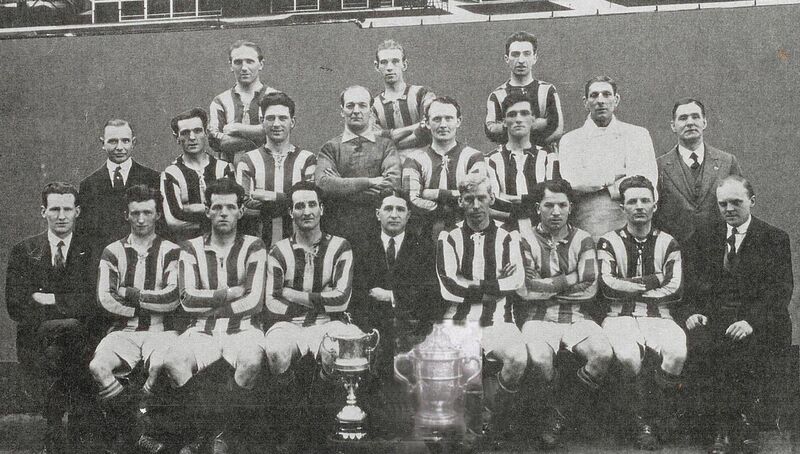
The one-off match was needed because the two teams had finished the season with 35 points each and goal difference was not used to determine the destination of the league trophy.
The play-off was held on April 25th and Cork Hibernians won 3-1 with Miah Dennehy netting a brace and Dave Wiggington scoring once.
Mick Leech, a senior Ireland international, got the solitary response for a Shamrock Rovers side that was ‘hammered’ according to the headline on that Monday’s edition of the Irish Independent.
Since then, there have been the games in the League of Ireland Cup and numerous ties at underage level, like the recent Women’s U17 National Cup final.
A meeting on the biggest day has eluded both clubs since Cork City were elected to the League of Ireland in 1984.
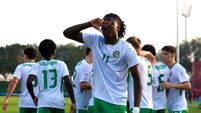
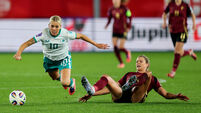
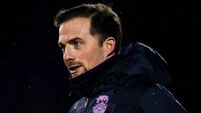
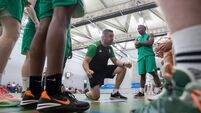
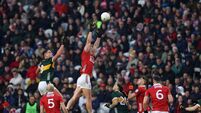
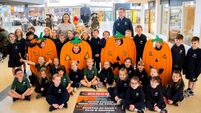

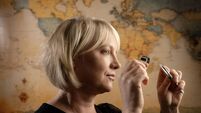
 App?
App?







